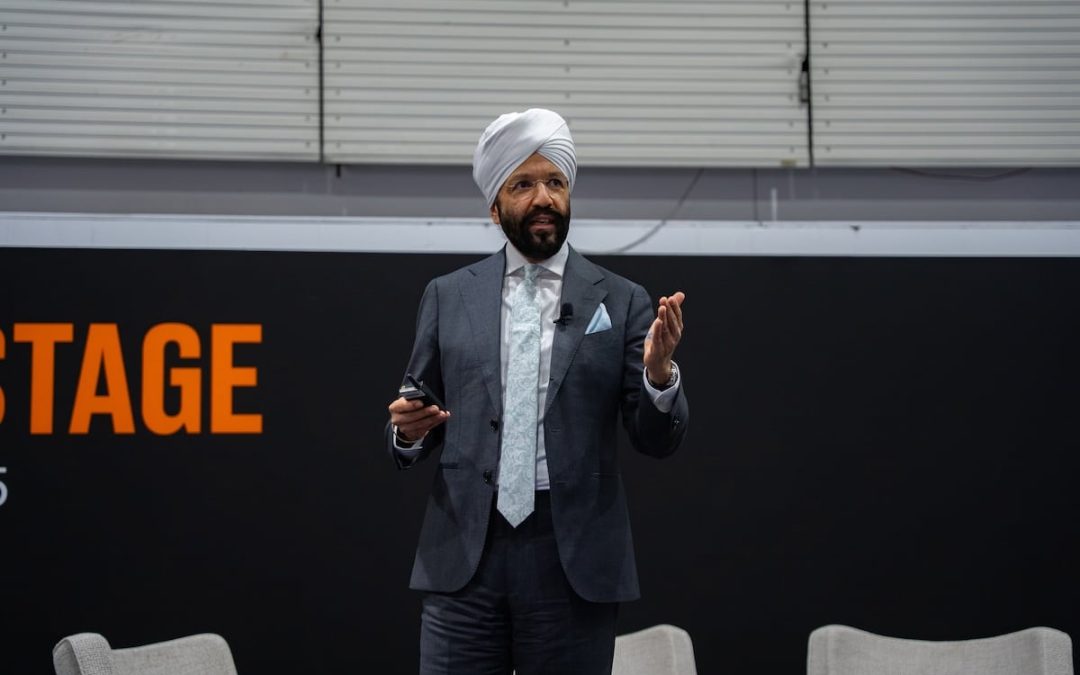BHP group procurement officer Rashpal Bhatti gave a far-ranging and insightful state of play on BHP and the global mining industry in his keynote speech on the second day of AIMEX in Adelaide.
Bhatti laid out the aspirations and scope of the Big Australian’s vision for the future and its plans for being at the centre of the copper mining and the role it will play in decarbonisation and clean energy.
Connecting the mining industry and BHP’s activities to the global economy and the environment, Bhatti presented a spirited vision that placed the company at the heart of the “copper revolution”.
“We are part of that copper revolution,” Bhatti told the large audience on the AIMEX main stage. “And if you thought that the electrification revolution was only in the early 1900s, you’re mistaken. We are in the midst of the second electrification revolution here and now, and the demand for copper in that electrification revolution is paramount.”
“We, all of us, find ourselves in a very privileged place to be right in the middle of its heart.
“Let’s deliver this aspiration and this vision for Copper South Australia, for BHP and for Australia. And, most importantly, let’s make a difference for the rest of the world and decarbonise for the people who come after us.”
Bhatti called copper “the commodity of our times” and said the critical mineral was integral to building a new world over the next century.
“I’m very keen that we make this very clear,” he said. “It is that the non-conventional requirements for copper have a much greater intensity for copper than the conventional. What we mean by that is that EVs, wind farms, solar and data centres, the copper intensity for those products is much greater than the conventional use.”
Bhatti highlighted BHP’s significant achievements in reducing emissions, including a 36 per cent reduction in Scope 1 and Scope 2 emissions and a 44 per cent decrease in chartered vessels’ carbon intensity. He said BHP has committed $170 million to partnerships globally and aims for a 30 per cent reduction in greenhouse gas emissions.
Bhatti emphasised the importance of displacing diesel as quickly as possible to reduce carbon emissions.
The company expects copper demand to grow from 30–50 million tonnes by 2050, driven by the energy transition and data centres.
BHP, the world’s largest copper producer, plans to increase its production to 2.5 million tonnes, leveraging innovative mechanisms like power purchase agreements.
Bhatti also emphasised the company’s commitment to renewable energy, with 100 per cent commercially renewable power in Chile. He emphasised the importance of displacing diesel as quickly as possible to reduce carbon emissions.
Bhatti ended his keynote speech with a call for leadership to move the world to decarbonisation and greener energy sources.
“Seeking better ways, making a difference is just a way of life for us at BHP,” he said.
“Now, of course, that doesn’t mean we get everything right, but it is that we have a very clear view that decarbonisation and innovation requires real leadership, and BHP is very, very proud to lead many parts of the decarbonisation and innovation approach across the world.”



